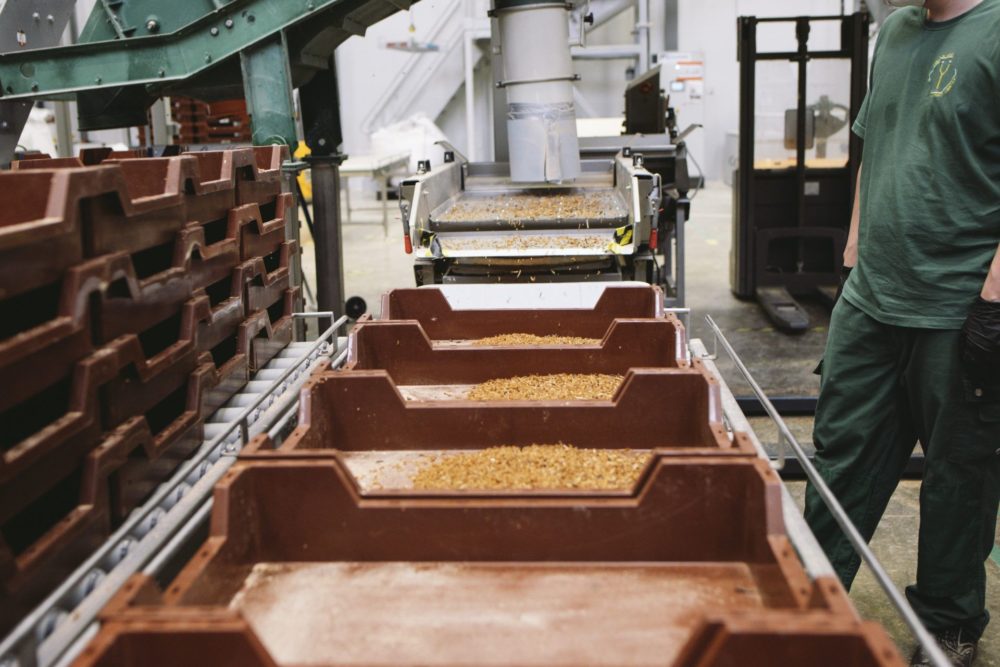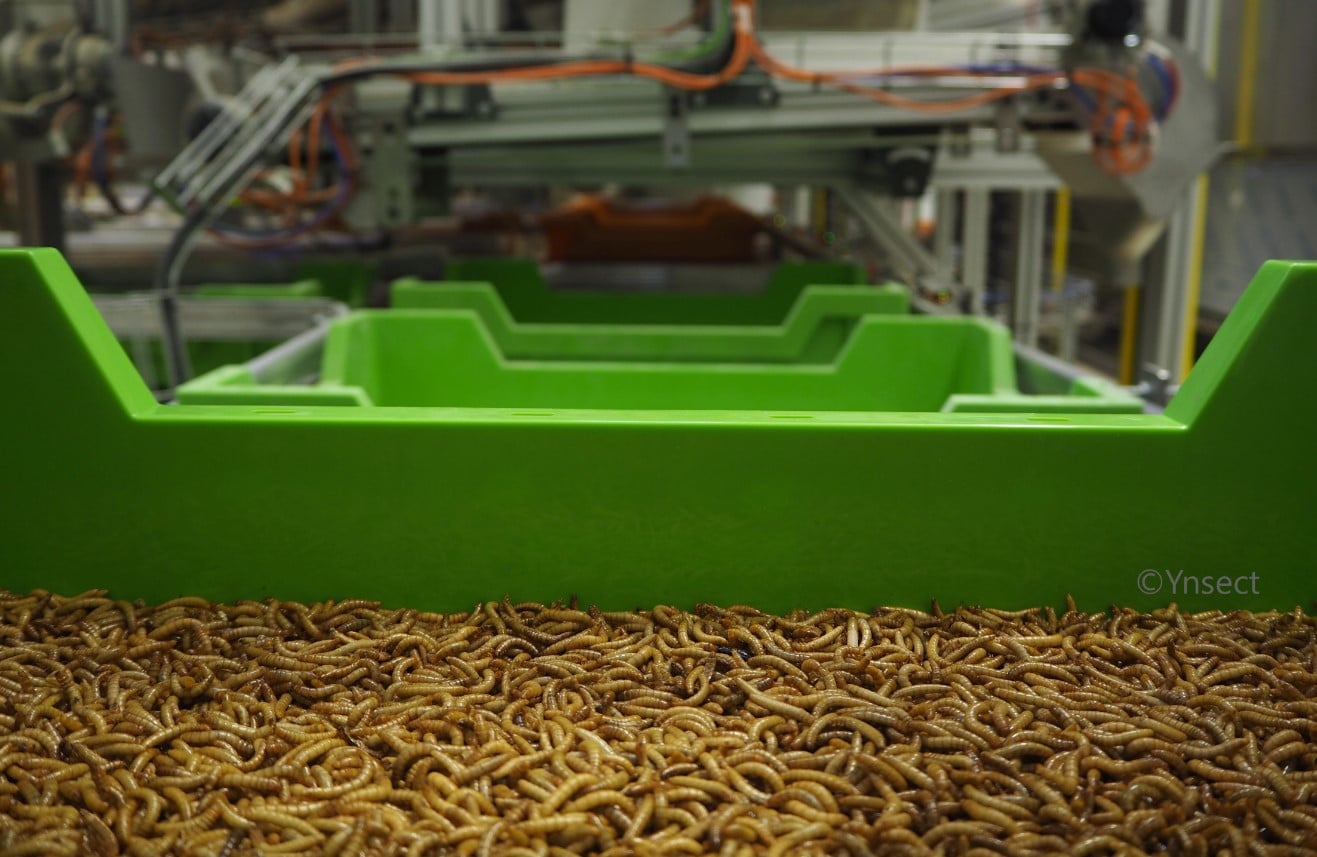Dubai, UAE— Saudi Arabia, in recent years, has emerged as a pioneering force in sustainable agriculture, seeking innovative solutions to address pressing global challenges such as food security, resource scarcity, and environmental sustainability.
One of the most promising frontiers in this endeavour is insect farming, a practice that holds immense potential to revolutionise the agricultural landscape of the kingdom.
As the world grapples with the need for alternative protein sources to feed a burgeoning population, insect farming has become a remarkably efficient and eco-friendly solution.
In this arid desert nation, where conventional agriculture faces significant constraints, cultivating insects for livestock feed is gaining traction as a viable and sustainable pathway to secure food supplies. This burgeoning industry not only offers a source of high-quality protein but also presents an opportunity to mitigate the environmental impact of traditional livestock farming.
Creating artificial climate
Insect farming in the GCC countries faces a unique set of climate challenges. The harsh, arid conditions, characterised by high temperatures and limited water resources, pose significant hurdles for sustainable insect cultivation.
Maintaining optimal environmental conditions for insect growth, reproduction, and development becomes particularly demanding in this context. Additionally, extreme heat and humidity levels in the region can adversely affect insect colonies, potentially leading to reduced productivity and increased susceptibility to diseases.
CEO and co-founder at Manna Insect Oy, Yka Marjanen, explained that balancing the need for controlled, insect-friendly environments with the constraints imposed by the GCC’s climate necessitates innovative strategies, such as climate-controlled facilities and advanced irrigation techniques, to ensure the viability and success of insect farming endeavours.

In an interview with TRENDS, he added: “Insects in general are sensitive to environments; that’s why we create artificial climates in most countries, not just in the GCC; even countries with tropical environments since it will be available all year long.”
Moreover, research and development efforts are crucial to adapt insect species and farming techniques to thrive in these challenging climatic conditions, ultimately paving the way for a more resilient and sustainable agricultural future in the GCC.
Benefits of insect farming
Insect farming is a powerful triple-win solution for the environment, fisheries, and the economy. As an alternative to conventional livestock farming, it emits fewer greenhouse emissions and uses fewer natural resources like land, water, and feed. This reduces deforestation and environmental loss from traditional agriculture and protects delicate ecosystems.
Second, insect farming is essential to the success of the fishing business. Fish feed made from insects, specifically the larvae of the black soldier fly, can be used to lessen the strain on already depleted marine food webs. In turn, this aids the sustainability of fish populations worldwide and restores aquatic ecosystems.
Finally, economically speaking, insect farming is a rapidly growing sector with enormous prospects for new businesses, cutting-edge research, and a flood of new jobs. The market for insect-based goods is growing, with applications ranging from animal feed to human nutrition. This industry has the potential to become a cornerstone of long-term economic growth, providing excellent prospects for business owners, farmers, and investors. In general, insect farming is a revolutionary force with far-reaching benefits that has the potential to revolutionise how we produce food, protect the environment, and grow the economy.
Marjanen clarified that Manna is an intelligent and energy-efficient technology for upcycling biowaste into high-protein animal feed and fertilizer by rearing black soldier fly (BSF) larvae in climatized, standalone 20-foot containers. For this reason, it removes the need for bio waste since it will fuel the creation of insect-based animal food and fertilizers.

Manna’s research over the years shows that 20ft is the most effective container size for localized small and medium-scale insect farming. While the customer training period takes 2 to 6 months, the business owner can start working independently.
Marjanen talked about Manna’s journey in insect farming when it was first established five years ago in Finland. He mentioned they needed something to control the environment; whatever was available wasn’t designed for insect farming. For this reason, Manna developed technologies that stop farmers from manually maintaining their equipment, like heaters and coolers, to provide the perfect conditions.
At the beginning of the procedure, insects are in small numbers, but they grow fast and rapidly, so after some time, they will work 24/7 to sustain small and significant places.
In Saudi Arabia
As Manna looks to develop the most accessible way around the world to create spaces and environments for larvae, the first method was shipping containers. The First Manna container was delivered to the Middle East in Spring 2023, mainly to Saudi Arabia; it’s completely standalone, meaning that business owners don’t have to invest or build walls or decide where to put it as the shipping container can be transported anywhere. It only requires electricity from the grip or solar panels, according to Marjanen.
About the benefits, Larvae insects eat everything like waste, which will significantly assist in converting bio waste into food and energy.
Other than Saudi Arabia, Manna Insect is looking to expand its business and partner with other countries in the region to develop the use of insect farming, which can also be beneficial for a country’s economy.
Insect farming in the GCC represents a beacon of hope in the face of formidable agricultural challenges. As these arid regions grapple with the dual imperatives of food security and environmental sustainability, the emergence of insect farming offers a promising and pragmatic solution.
By harnessing the remarkable efficiency of insects as protein producers and recyclers of organic waste, the GCC is poised to revolutionise its agricultural landscape.
The potential benefits extend beyond regional borders, with insect farming poised to inspire a global shift towards more sustainable and resilient food systems. As research and innovation continue to propel this nascent industry forward, the GCC’s journey into insect farming stands as a testament to human ingenuity and adaptability in pursuing a more sustainable future for food production and environmental stewardship.
With steadfast commitment and collective effort, the GCC is well-positioned to lead the way towards a more sustainable and resilient future for agriculture within its borders and on the global stage.








